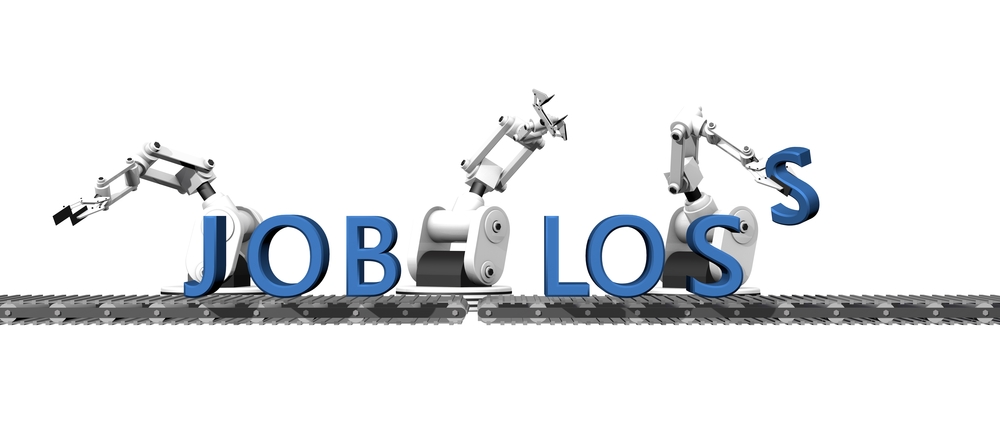The job market remains ugly, regardless of the boasting from the president, the Fed and Wall Street’s talking heads. As Jeff Opdyke has explained on more than one occasion, we’ve replaced high-paying jobs in the manufacturing sector with low-paying jobs in the services and health care sectors. That is not how you build up a middle class that will support your economy.
Security in the job market doesn’t look like it’s going to improve anytime soon. A recent survey of 5,006 adults by the Pew Research Center revealed that more than half of American workers believes there will be less job security over the next 20 to 30 years. What’s more, technology is seen as a rising threat to jobs.
Approximately 71% of workers believe that employees will need to improve their skills more often in the future if they want to keep up with job-related developments, particularly as more robots are used in the workplace.
In fact, we’ve seen a significant rise over the past couple of years of the implementation of robots, starting with the fast-food industry. In California, Zume Pizza has replaced its human chefs with robots, cutting its labor costs in half.
Uber is using self-driving cars in parts of America, and there’s a push to start using self-driving trucks for long-distance deliveries. Forrester reports that robots could eliminate many positions in customer service, trucking and taxi service — about 6% of the U.S. job market.
And now robots are creeping into banking. Earlier this week, Royal Bank of Scotland announced that it will soon unveil Luvo — a “human” AI that can answer questions online and mimic human empathy. This robot will be able to serve customers 24 hours a day, reduce the workforce and cuts costs.
A Swedish bank plans to use the robot Amelia for customer services. And companies in China, Japan and Taiwan have already implemented Softbank’s Pepper robot.
Yes, we’ve had several technological revolutions over the centuries that have significantly changed the job market, forcing employees to either develop new skills or go jobless. But my concern is that technology is evolving faster now than ever before, and humans simply won’t be able to keep up with the changes.
We’re not creating enough high-paying jobs to support our middle class, and we’re replacing our low-paying jobs with robots.
Where does that leave us?
With a lot of people jobless and dependent on a system that’s already drowning in debt.
The American economy is already poised for collapse and won’t be able to survive many more direct hits. Putting more of the workforce out in the cold could definitely topple the entire system.
Regards,
Jocelynn Smith
Sr. Managing Editor, Sovereign Investor Daily
